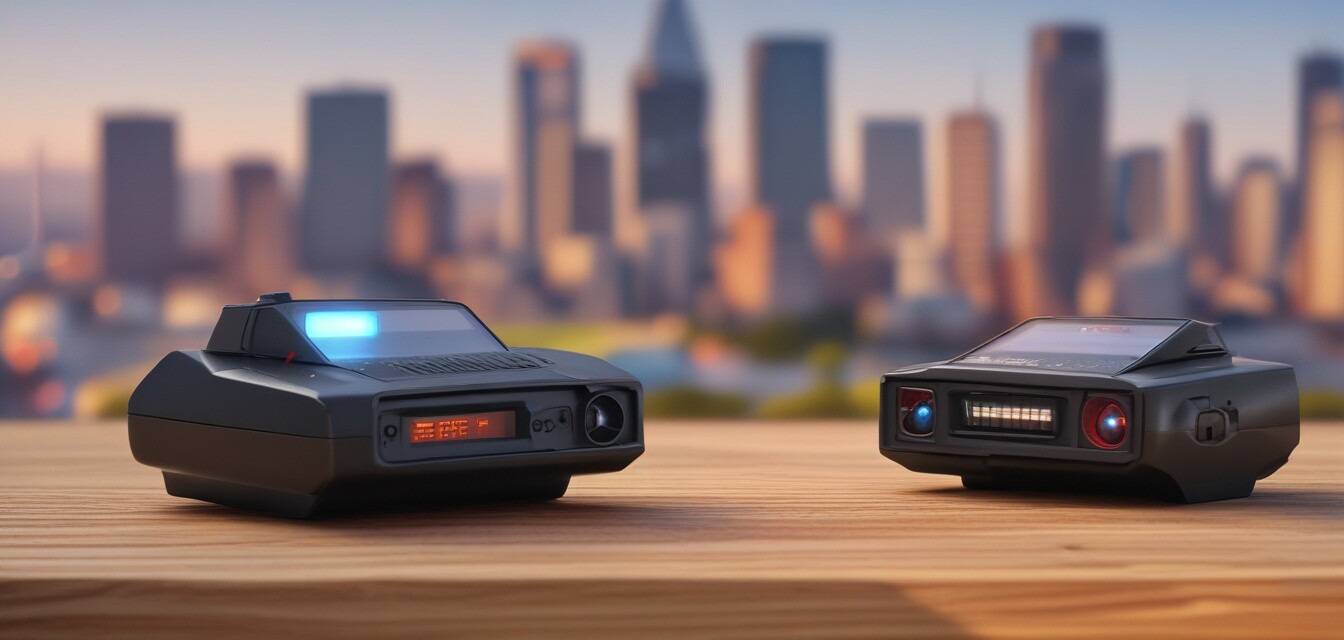
Radar Detectors vs. Police Scanners: Which is Right for You?
Key Takeaways
- Radar detectors detect radar signals emitted by police speed traps.
- Police scanners allow you to listen to police communications in real-time.
- Choosing between them depends on your driving habits and needs.
- Both devices have their own advantages and can complement each other.
- Understanding the legal implications is crucial in your decision.
When it comes to driving, staying informed can mean the difference between a smooth journey and an unexpected encounter with law enforcement. Two popular devices—radar detectors and police scanners—serve different purposes but can enhance your driving experience when used correctly. This article will compare radar detectors and police scanners, helping you determine which device is best suited for your driving habits.
What is a radar detector?
A radar detector is a device designed to detect if your speed is being monitored by law enforcement using radar guns. The primary goal of a radar detector is to provide alerts when it detects police radar signals. Here are some common features of radar detectors:
- Alerts for radar and laser signals.
- GPS capabilities to mark locations of speed traps.
- Voice alerts for added convenience.
- Traffic monitoring features to avoid congestion.
What is a police scanner?
A police scanner, on the other hand, enables users to listen to live communication between police officers and dispatchers. This device works by tuning into frequencies that law enforcement agencies use for communication. Key features of police scanners include:
- Real-time alerts on police activity in your vicinity.
- Customizable scanning options to monitor specific frequencies.
- Emergency alerts for severe weather or public safety threats.
- Multi-channel scanning for covering various agencies.
Radar Detectors vs. Police Scanners: A Comparison
| Feature | Radar Detector | Police Scanner |
|---|---|---|
| Purpose | Detects police radar signals | Listens to police communications |
| Alerts | Visual and audible alerts | Live audio feed |
| GPS Functionality | Often included | Rarely included |
| Legal Considerations | Legal in most areas | Legal but subject to regulation |
| Price Range | $50 - $500 | $30 - $600+ |
When to use a radar detector
Having a radar detector can be especially beneficial if you regularly drive in areas known for speed traps or aggressive law enforcement operations. Here are some scenarios where a radar detector proves useful:
- Daily commuting on highways where speed enforcement is common.
- Long road trips in unfamiliar areas.
- Participating in long-distance travel to avoid speeding tickets.
When to use a police scanner
If you are more interested in keeping up with local happenings or want to stay informed about emergencies, a police scanner could be the device for you. Consider a police scanner if:
- You want to stay informed about regional crime activities.
- You live in an area with frequent emergencies or natural disasters.
- You enjoy monitoring police activity as a hobby.
Why not both?
For some, the best solution is to use both devices. Radar detectors and police scanners can complement each other, providing comprehensive protection and awareness on the road. With both devices, you can:
- Receive alerts about speed traps while being informed about police activities.
- Enhance your travel experience with timely, relevant updates.
Pros of Using Radar Detectors
- Prevents speeding tickets.
- Improves driving awareness.
- Easy to install and use.
Cons of Using Radar Detectors
- May provide false alerts.
- Legal restrictions in some areas.
- Can be costly, depending on features.
Pros of Using Police Scanners
- Real-time information about emergencies.
- Intuitive hobby for those interested in public safety.
- Access to multi-agency communications.
Cons of Using Police Scanners
- Can require complex setup and programming.
- Limited range in rural areas without proper frequencies.
- May track non-relevant chatter.
Legal considerations
It’s essential to understand the legal considerations surrounding the use of radar detectors and police scanners, as laws can vary widely by state and locality. Always consult local regulations to ensure compliance.
Conclusion
Both radar detectors and police scanners serve unique purposes that cater to different driving needs. By considering your specific requirements, you can make an informed choice that keeps you safe and aware on the road. Whether you opt for a radar detector, a police scanner, or choose to invest in both, understanding how each device works will empower you to navigate your journey with confidence.
For more insights on radar detectors and related products, check out our Buying Guides section. If you're interested in more advanced models, visit our Advanced Radar Detectors category. For those considering entry-level options, explore our Entry-Level Radar Detectors page.
For additional resources regarding communication devices, consider our Police Scanners & CB Radios section or check our Radar Detector Accessories category for enhancing your device experience.
